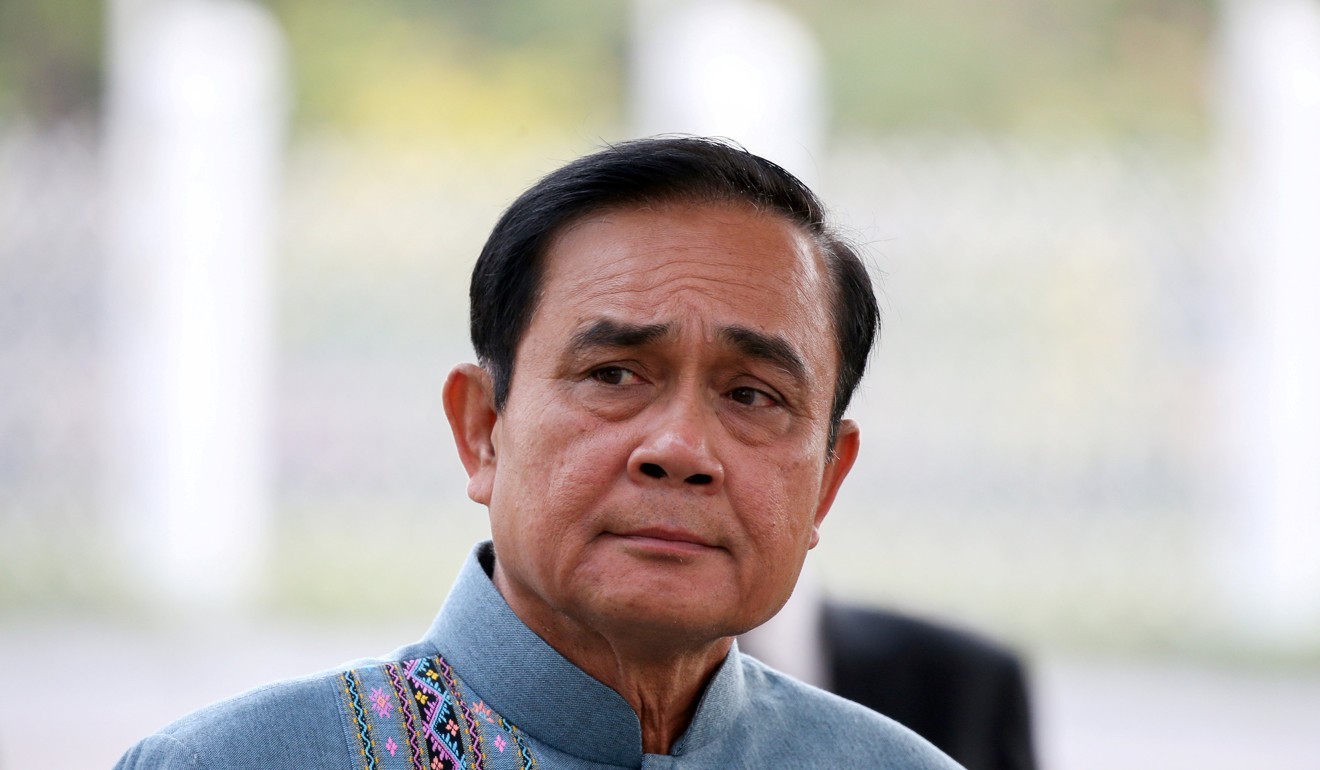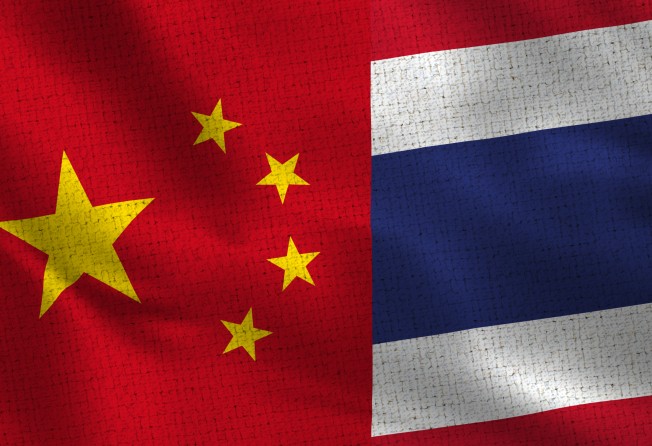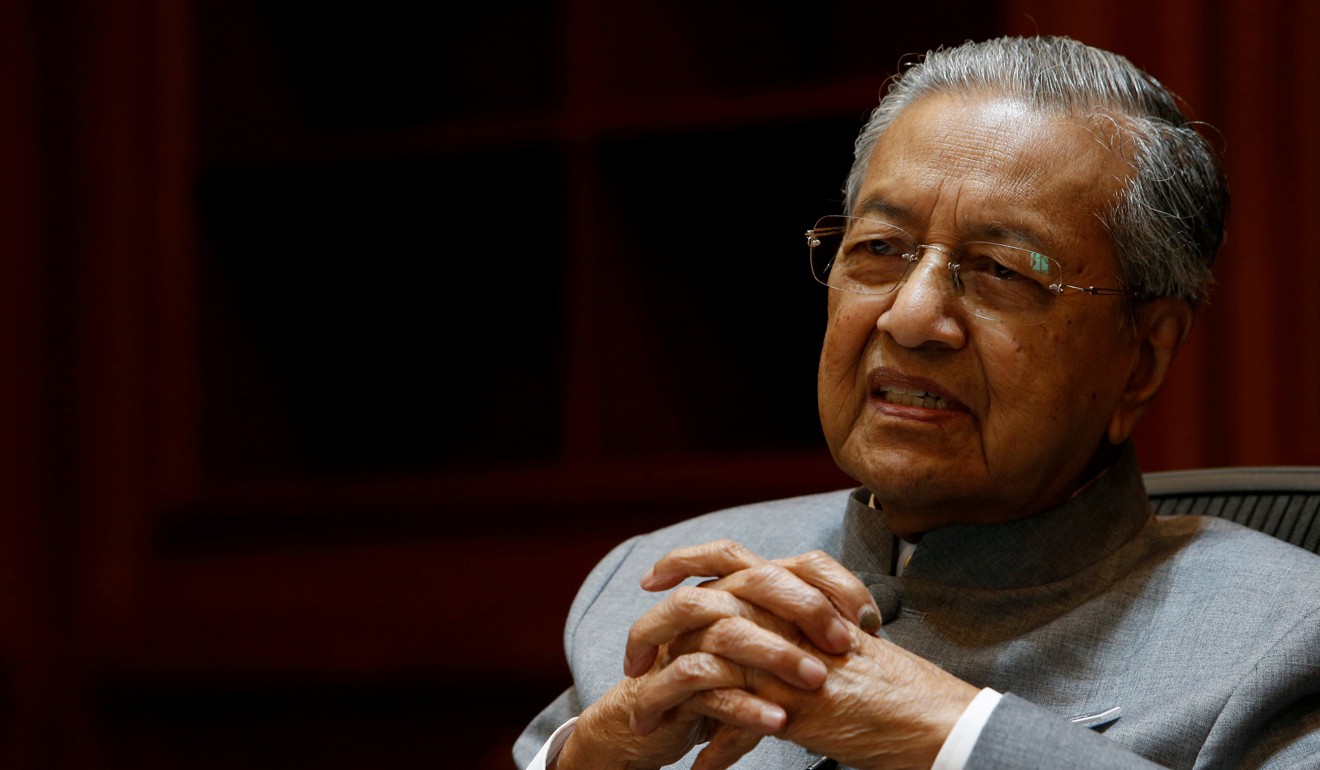
‘Let’s learn from Malaysia’s Mahathir Mohamad’: is Thailand about to ditch China for the US?
- Pro-democracy politicians say the post-election future will see Thailand recalibrate its ties with China and throw doubt on a troubled rail link. Sound familiar?
- Analysts in Beijing were more optimistic, expecting the domestic political status quo to remain and bilateral ties to stay on an even keel

“It’s time for a rebalance”, “we’re too close to China”, “let’s learn from Malaysia’s Mahathir Mohamad”.
Those were some of the views on the future of Sino-Thai ties coming from pro-democracy Thai politicians and foreign policy watchers ahead of next week’s election – the country’s first since the May 2014 coup.
Analysts in Beijing were more optimistic, expecting the domestic political status quo to remain and bilateral ties to stay on an even keel.
Ever since General Prayuth Chan-Ocha seized power from the now-exiled former prime minister Yingluck Shinawatra, there has been a question mark over how he would position the country in the battle for regional influence between the United States and China.
After the coup, Washington reduced its security cooperation with Thailand, which alongside the Philippines is one of America’s two Southeast Asian treaty allies. At the same time, Prayuth took his country closer to China, buying arms worth billions of baht from the Asian power over the last five years.

But now, whether or not Prayuth remains in power – and the odds are that he will because of skewed electoral rules – Sino-Thai relations are likely to be “rebalanced”, according to Pongphisoot Busbarat, a leading analyst of the Southeast Asian country’s foreign policy.
“The foreign policy establishment in the US and in Thailand are waiting for the normalisation of ties. Whether it’s Prayuth or some other party, this is going to happen,” said Pongphisoot, a lecturer at Chulalongkorn University. That raises the possibility of a resumption in US defence financing and military education opportunities for Thailand.
“We’re very actively preparing [for that],” Peter Haymond, the American Charge d’Affaires ad interim in Bangkok, told Bloomberg this month.
The junta’s opponents say now is the time for the country to recalibrate its interaction with the West.
While China’s economic influence has not sparked the kind of frenzied domestic political debate that dominated campaigning before polls in neighbouring Malaysia last year, it is among the foreign policy issues candidates are discussing with voters.
Thanathorn Juangroongruangkit, the chief of the Future Forward Party, said his country had much to learn from the Malaysian prime minister, Mahathir Mohamad. Soon after his shock election victory last year, the 93-year-old ordered a review of Chinese-linked infrastructure projects. Some were then cancelled, while negotiations are ongoing to reduce the 55 billion ringgit (US$13 billion) price of the 688km East Coast Rail Link.
One project the 40-year-old Thanathorn said he might review if he came to power was work on a 3.5km portion of a rail link between China and Thailand. Other parts of the link already face an uncertain future. “We have been giving too much importance to dealing with China,” Thanathorn said. “We want to reduce that and we want to rebalance our relationship towards Europe, towards Japan, and towards the US more.”
He added: “Talking about the high-speed rail collaboration with China, maybe we have to look at Mahathir’s model for Malaysia.”

Prayuth and members of his Palang Pracharat Party were not available to comment on their foreign policy. But in an interview with Time magazine last year, the junta leader said “China is the number one partner of Thailand, along with other countries in the second and third places like the US and others.”
Pavida Pananond, an associate professor of international business at Thailand’s Thamassat University, said Prayuth might adjust his dealings with Beijing after the election – if he is still prime minister.
She pointed to Thailand’s chairmanship this year of the Association of Southeast Asian Nations [Asean]. “The growing rivalry between the US and China and Thailand’s role as Asean chair this year makes it necessary for Thailand to tread carefully in balancing its relationships with the two superpowers,” said Pananond. Domestic unease over income inequality also meant Prayuth was likely to tread carefully in dealing with Beijing, she said. “Mega-deals between Chinese investors and Thai businesses that appear to favour large Thai conglomerates will become even more unpalatable, particularly if they are perceived to be unfairly agreed upon during the Prayuth government”.
China-based analysts, meanwhile, took a more sanguine view on the post-election future of bilateral ties. Xu Liping, at Beijing’s state-linked Chinese Academy of Social Sciences, said in a commentary that “with very few exceptions” Prayuth’s administration was likely to retain power after the polls.
“As for China-Thailand relations, historically, no matter which government came to power after several coups, the direction of bilateral ties has never changed,” he wrote in the Global Times newspaper last month.
Nie Wen Juan, an associate professor of international relations at the China Foreign Affairs University, said a lack of bilateral disputes, strong “non-governmental” exchanges, and an erratic US government under President Donald Trump meant Sino-Thai relations were likely to stay on an even keel. Said Nie: “The uncertainty of the Trump administration has caused Southeast Asian countries including Thailand to adopt a pragmatic and prudent strategy in the face of competition from major powers. Thailand’s China policy is [unlikely to experience] major adjustments.” ■